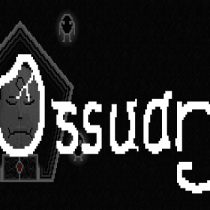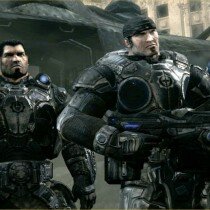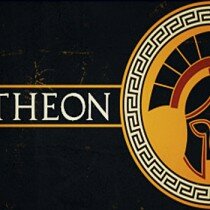With Dragon Age III on the cards for 2013, now seems as good a time as ever to analyse the first two games as a way of getting us in the dragon-murdering mood, starting with the first game.
Dragon Age: Origins is a game that will divide opinion. While this is true of any game, it is particularly true of Dragon Age. The term ‘Hardcore Game’ is one that can oftentimes be thrown around loosely and can often mean very little. Dragon Age is most definitely, however, a hardcore game. At first glance a fairly run-of –the-mill sword and sorcery elf-em-up, on closer inspection Dragon Age reveals a pretty in-depth and complex statistic-driven game mechanic, especially for a game mainly aimed at console gaming. Indeed, it is Neverwinter Nights, the Dungeons and Dragons ™ PC tour de force, which most readily comes to mind when playing Dragon Age. Like Neverwinter Nights, Dragon Age can be as simple or as complex as you choose to make it. Weapon and armour statistics can be poured over, with relative effects bonuses and such a wide variety of ranked abilities that a player who is so inclined can spend literally hours agonising over which sword would, in fact, be best to jab into that goblin’s face. This is replicated in the ability to micromanage the development of your various pixelated slaves… I mean companions! However, for those of a less…. OCD persuasion, there is the option to let the game auto-level the party and even your own character so you can get down to the important goblin/face introductions. Unfortunately, if you choose the latter option, unless you choose the sword and shield fighter on easy, You. Will. Die… A lot… You will be eaten by wolves. You will be killed by rats, even. There is no real accommodation for the casual pick up and play brigade here, no sir. It almost feels like a deliberate feature on behalf of the developers, as if to say ‘you don’t want to use our lovingly crafted statistics? Well F**k You! Eat rodent death!’. Or perhaps I’m reading too much into that…

It gives good artwork, I’ll give it that
So, that being the case, how does the game mechanic hold up? Well, the answer would be a resounding ‘it depends’. The mechanic plainly works better for some character classes than others. Well, more like a class: the fighter. The fighter gets the cool kill animations, the most effective attacks and is by far the only character that can hope to survive with any consistency in later game combat. The rogue and mage characters are depicted as so vulnerable and weak you’d think they were ill. I actually checked my character sheet to make sure my mage hadn’t contracted the plague while I hadn’t been looking he was so prone to falling over. While I’m sure people will tell me this is as it should be and that wizards and rogues aren’t meant to be tough (I mean look at Raistlin for goodness sake) but, there’s weak in a fight and then there’s embarrassing. Then there’s mages in Dragon Age. You know what, considering this and the fact the title screen is a silhouetted armoured best of a warrior with a sword stuck in the ground in the foreground, along with the rear of the box being a big sword hilt, I honestly think the developers made a game about being a meathead warrior, only for the marketing department to tell them this ‘limited the demographic’. In the face of this, I reckon they added rogues and mages, but under duress, making them as weak and useless as possible, just to prove a point.
The actual combat, the bread and butter of any fantasy RPG, is fairly solid, especially if you take the time to really tweak and optimise your stats. The squad-based mechanic of being able to control all of your party, freezing combat and queuing up actions (again just like Neverwinter Nights) allows for tactical action unlike most other RPG games and is virtually unheard of on console RPGs. This simple feature truly does turn what is a fairly slow and plodding combat mechanic into a very effective tactical system. It’s one of those systems where the more you put in, the more you get out. This links very well with the statistical smorgasbord on offer and there is nothing quite as satisfying as seeing the extra 2 lightning damage on your new sword make the difference between killing a monster at a key point or not, especially as you spent 10 minutes puzzling over whether to choose it over your previous weapon which was more likely to hit, but did less damage. It’s nice to have a game where you can see a tangible result from your basic gear decisions.

The game mechanic will divide opinion greatly
Now, this is a Bioware game, so of course, what I’m meant to say right here is that the storytelling and narrative are excellent. The usual blend of inspired and epic, right? Well, while the story itself is told in a manner beyond most game narratives (not hard as most game narratives these days are along the lines of ‘evil foreign/alien/slightly annoying people must be shot. Don’t question us, just shoot them!), the core premise is nothing special. I’ve seen people laud this game’s narrative as original and brilliant. I’m sorry, but I just don’t agree. When boiled down, their premise is as follows [Spoilers]: Demons Darkspawn rise up from hell to terrorise the country. The king is an idiot who gets betrayed by his Grand Vizier general and you rise from insignificance to become one of the Jedis Grey Wardens, who are ‘The Only Ones Who Can Stop Them™’. You run around doing everyone’s busy work on an epic adventure. Eventually you confront Darth Vader the general and unite the country to defeat the main boss, defeat bowser, destroy the Deathstar, kill the Archdemon. Oh and sprinkle in some pretty clichéd characters, such as the slutty emo witch, the uptight cleric and the innocent and naïve religious girl.
This is hardly anything ground-breaking. Now, I will grant that the story itself is well told, with a number of standout moments that will lodge in your memories, but it all feels very ‘been there done that’ most of the time. While when taken individually most aspects of the game are good and well done, there’s nothing that you haven’t seen done better elsewhere. This doesn’t make it a bad game by any means; it just isn’t quite ground-breaking like it’s been hailed in some quarters.
Unfortunately the graphics/art style doesn’t really help with the immersion. The graphics feel pretty last gen, perhaps to compensate for the processing power required for the game engine, but in this day and age, they do look awful. There are a lot of clipping and drop in issues, with textures loading very slowly, despite their poor quality. The character creation is fairly good, though some of the slider options look fine in preview but look awful in game cut scenes. One particularly funny design feature is that your character gets covered in blood splatters when they fight and this carries on into cut scenes. However, this goes acknowledged by the character, so you can find yourself having a conversation with a nice old priestess about how the parish is doing, while covered in pretty much a layer of gore, which both of you ignore as if it’s not there. This if a fairly surreal moment I assure you and is almost worth playing the game for alone.

Its a bit…messy
Speaking of design and game choices, the overall tone of the game feels rather unsophisticated. The game tries to introduce the concepts of racism and prejudice in the treatment of city elves, but it all feels rather half-hearted, feeling all very 2 dimensional. At almost comedic levels of fairly visceral violence rather jar against the cartoony feel of the stereotype characters and the character design. All in all, the tone of the game feels like what would happen if a teenager was asked to write a mature fantasy short story, a fact that, again, detracts from the feel of the game at times.
Though I have brought up a lot of negatives and you would be forgiven for thinking I didn’t like the game, that couldn’t be further from the truth. The game itself is highly enjoyable and challenging
, with the combat in particular rewarding those who take the time to optimise their characters. The party-based combat is excellent; if possessing a rather steep learning curve, and once you hit your groove it’s a great feeling to see a tactical plan work. Yes, the game has plenty of flaws and many won’t be able to see past the incredibly choppy visuals, but at its heart this is a balls-out hardcore RPG in the tradition of the paper and pen RPGs of old. If you go into this expecting a cavalcade of arcade ork killing, a la Dragon’s Dogma et al, you will be disappointed. However, approach this as a tactical stat-based RPG, and you will find a game short on polish, but long on quality gameplay and action, with a narrative that while clichéd and rather familiar is well told and immersive despite itself. Its rather like that one friend that everyone has, the one who frustrates and annoys you at times, who makes questionable lifestyle choices and looks a bit scruffy, but when you spend time with them it’s always bloody good fun. Dragon Age: Origins is the computer game version of that friend and I wouldn’t have it any other way.
© 2012 – 2014, zero1gaming.com. All rights reserved. On republishing this article your must provide a link to this original post
About Paul Izod
Paul Izod is a lifelong gamer. Since he was old enough to tap at his Dad's PC's keyboard he's been a gamer. Dedicated and often opinionated, you can be sure he'll always have something interesting to say about the subject at hand. Find him on Twitter at or or email him at
•




